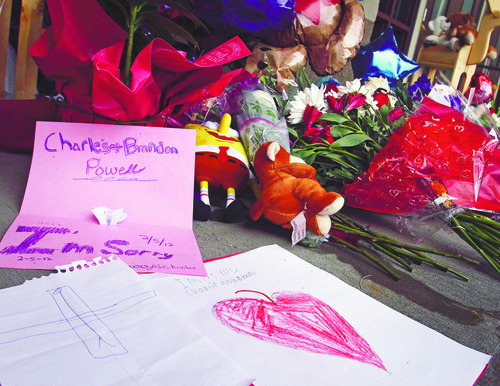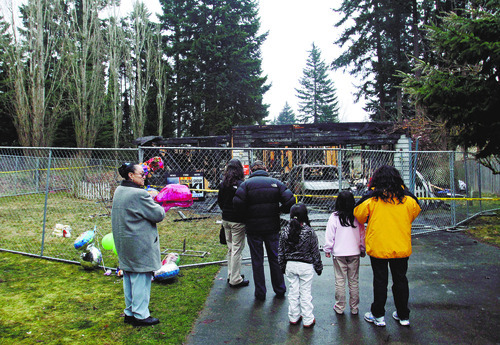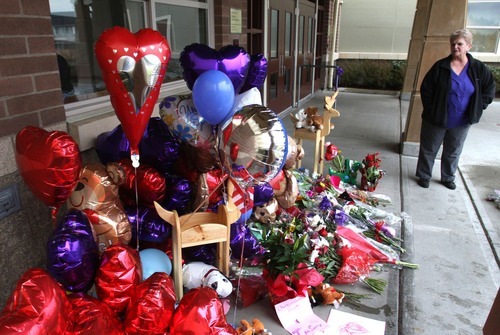This is an archived article that was published on sltrib.com in 2012, and information in the article may be outdated. It is provided only for personal research purposes and may not be reprinted.
The emergency dispatcher who took the initial 911 call reporting Josh Powell's behavior before he set fire to his Washington state home on Sunday wasted precious time and didn't get the information needed to send help immediately.
Call logs show it took 22 minutes from when the call was made to when sheriff's deputies arrived at Powell's home, the Associated Press reported.
An expert whose Salt Lake City organization creates dispatch procedures for agencies around the world criticized the dispatcher's performance. (Read the transcripts and listen to the calls here: http://bit.ly/xAoX8c)
"From our point of view, that call went on way too long and gathered very little as far as actionable information goes," said Michael Thompson, medical and fire consultant for the Priority Dispatch Corporation and National Academies of Emergency Dispatch.
Josh Powell, 36, lit the fatal fire at his Graham-area home after locking his door against caseworker Elizabeth Griffin-Hall, who had brought his two boys for a supervised visit with their father.
After 10 minutes of pounding on the door, Griffin-Hall placed a frantic call to 911, saying she was locked out, one of the boys was crying and she smelled gasoline. The dispatcher then spent six minutes questioning her about Josh Powell and the children, her job and the car she was driving.
Even the local sheriff's office in Washington has expressed dismay at how the call was handled.
"We're not happy with the way that dispatcher is bantering [with the caseworker]," Pierce County Sheriff's spokesman Sgt. Ed Troyer told The Seattle Times on Wednesday. "We understand that could have been handled better."
Troyer said his department is attempting to create a timeline to determine exactly how long it took for deputies to arrive on scene.
Emergency call logs show that nearly eight minutes elapsed between when a social worker called 911 to report that Josh Powell's children were in danger and when deputies were dispatched, and it took another 14 minutes for a deputy to get to the home.
The Associated Press obtained the logs Wednesday night under a public records request.
Troyer said deputies could have arrived at the Powell home sooner had the 911 call been handled more effectively.
But Troyer also noted that the caseworker could not immediately provide Josh Powell's home address, which made it difficult to dispatch deputies, according to The Times.
Thompson said using questioning procedures like those his company creates would have allowed police to respond more quickly.
"That call went on for almost a total of six minutes, which is completely out of scope," Thompson said. "My impression is there was no structure in pacing or questioning sequence. It was all over the board."
Thompson said a single question — "Tell me exactly what happened" — would have properly guided the conversation.
Instead, the dispatcher asked Griffin-Hall about her specific role in the situation, and the color and license plate number of her car.
"That has zero bearing to the case," Thompson said. "He let her fumble around with exactly what happened, while all of this is unfolding in the background."
But the director of the independent agency that handles 911 calls for Pierce County said events aren't always obvious as they are unfolding.
"This call first comes to us blindly on the other side of a phone; it is only in hindsight that we see things that are not apparent to the call takers," wrote Tom Orr, director of the Law Enforcement Support Agency, in a press statement. He expressed his "deep sorrow"over the deaths of the Powell boys — Charlie, 7, and Braden, 5 — and said the agency's administration will investigate "all aspects" of this incident and refine their processes as necessary. He also said that individual dispatchers may face disciplinary actions.
All dispatcher training is handled in-house, said Kris Dessen, spokeswoman for the agency, which receives 745,000 calls annually.
Dispatchers are given four weeks of book training and then five weeks of on-the-job training where they and a supervisor together answer every call. Dispatchers are then put on a one-year probation, with twice-quarterly check-ins to ensure they are doing their jobs properly, said Jodi Maeir, training supervisor for the agency.
Dispatchers are trained to ask who, what, when, where and if there are weapons or injuries involved, Maeir said. The two pieces of information necessary to input a call into the dispatcher's computer system are the address of the event and the nature of the emergency, she said.
She said that while one person is typing and asking questions, a second person already may be notifying emergency responders.
As for the 911 call placed outside Josh Powell's home, Thompson ran that call information through his dispatching software four different times. Each time, one minute into the call, the software recognized the situation as a custodial abduction and immediately moved it to a higher dispatch level, meaning officers would have immediately responded.
"My personal thought is that the dispatcher didn't know what to ask. He was shooting in the dark and trying to come up with something he could deal with," Thompson said.
Thompson also was concerned that the dispatcher's lack of clear questioning led him to believe the situation at Powell's home was not life-threatening despite the protestations of the caseworker.
"They are on polar opposites of the issues — he's not asking questions to develop the information, and she's not giving that information on her own to make that decision," he said.
But he doesn't blame the caller. Few people in a stressful situation can organize their thoughts well on their own and quickly provide pertinent information. That's why protocols and scripts are so important, he said.
"Would all of this have changed the outcome? It's impossible to speculate, and you'll never know," he said. "That's why you do it correctly in the first place."
Twitter: @sheena5427







